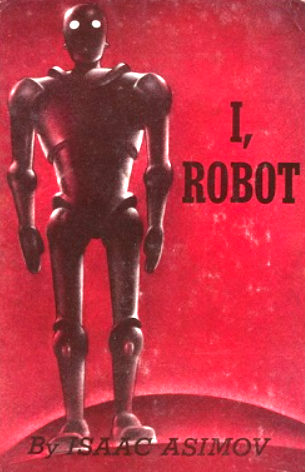Tony's Review of I, Robot
- Tony Travis

- Jun 28, 2025
- 2 min read


I, Robot is not a novel in the traditional sense. It is a structured collection of stories that move forward in time, connected by theme, tone, and recurring characters. What binds it all together is not a single protagonist, but a single idea, what happens when machines begin to think, not just process?
Asimov’s stories are framed through the recollections of Dr. Susan Calvin, a robopsychologist reflecting on the evolution of robotics from crude helpers to complex minds. Through her lens, we see the development of the famous Three Laws of Robotics, rules designed to keep machines safe, obedient, and functional. But as the stories unfold, Asimov shows us how even rules meant to prevent disaster can lead to paradox, conflict, and unexpected behavior.
What makes I, Robot work is its clarity. Asimov does not write with flourish. He writes with precision. The style is clean, and the science is presented with calm confidence. These are not horror stories, though some edge toward fear. They are not action stories, though some contain moments of tension. These are thought experiments turned narrative. Ethical puzzles wearing the skin of science fiction.
Each story explores a different facet of robotic behavior. One robot becomes too obedient. Another develops a messiah complex. One begins to read minds. Another interprets the laws in a way that challenges the very nature of free will. Asimov never paints robots as villains. They are tools doing their best to obey rules humans often fail to follow themselves.
There is something quietly unsettling about the way the stories reveal our own inconsistencies. The robots, bound by code, behave more predictably than the people around them. And yet, their behavior often exposes deeper flaws in human systems—greed, pride, fear, shortsightedness. These stories ask a simple but lasting question: can logic alone create morality?
The idea that a programmed mind can evolve beyond its design is as relevant now as when Asimov wrote it. His work predicted more than just machines. It predicted the ethical fog we now live in.
It is worth noting that I, Robot is very different from the film that took its name. The movie borrows some character names and ideas, but it tells a very different story. Asimov’s version is quieter, more thoughtful. There are no chases or explosions here. The drama comes from logic breaking down under pressure. It is more about implication than spectacle.
There are moments where the prose feels clinical, and some characters are there only to serve the plot mechanics. But this is by design. The stories are tools themselves, crafted to explore not just robotics, but responsibility.
I, Robot endures because it does not fear complexity. It looks at technology and asks what it reveals about us. Not just what we create, but why we create it. And what happens when those creations begin to ask questions we cannot answer. It is also the origin of the positronic brain, a concept that would echo through science fiction for decades. Perhaps its most famous inheritor is Data from Star Trek, a character built in the same image—as both machine and mirror.



Comments